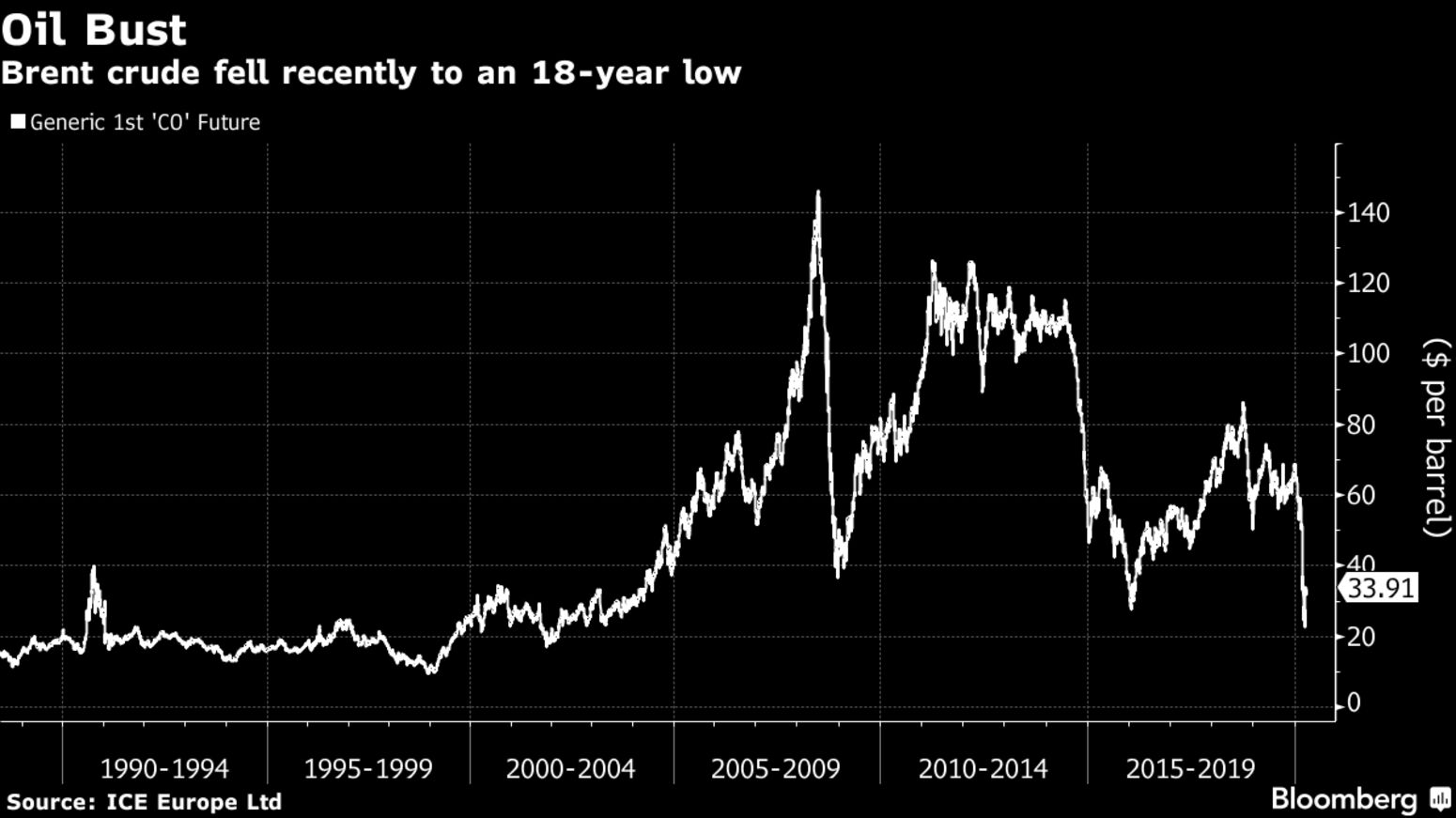One of the most dramatic global oil production agreements in history has been left hanging on the approval of an unlikely character: Mexican President Andres Manuel Lopez Obrador. For weeks Russia and Saudi Arabia, two energy powerhouses, have been sparring over oil, with their dispute sending crude prices tumbling. That drew in U.S. President Donald Trump, with a strong interest in seeing prices stabilize and in supporting America’s shale industry as he campaigns for reelection in November.
And yet when Moscow and Riyadh finally seemed to have found common ground on production cuts, at a meeting on Thursday of OPEC+ nations that followed a flurry of diplomatic activity and high-level calls, it was Mexico that called time. Lopez Obrador refused to sign off on the deal, even after the other 22 nations inked the pact to withdraw 10 million barrels a day from the market in a bid to tame a price plunge. From his office at the National Palace in Mexico City, the president known as AMLO was worried about only one thing: Pemex.

Mexico’s national oil producer, with debt of more than $100 billion, is the centerpiece of his administration’s efforts to become self-sufficient in energy generation and stem a 15-year decline in production. Slashing 400,000 barrels a day to comply with the OPEC+ deal would put on hold his ambitious plan to return Pemex to its past glory. It was also a response reflective of a leader who has stubbornly gone his own way, including an initial refusal to enact stringent lockdown measures in response to the coronavirus pandemic. AMLO, a populist who spent his political career decrying the rich and powerful, has relied frequently on his reputation as a president who advocates for his people, especially poorer workers, and who eschews the trappings of high office including a private jet. He’s yet to travel overseas or attend multilateral meetings since coming to power in December 2018.
